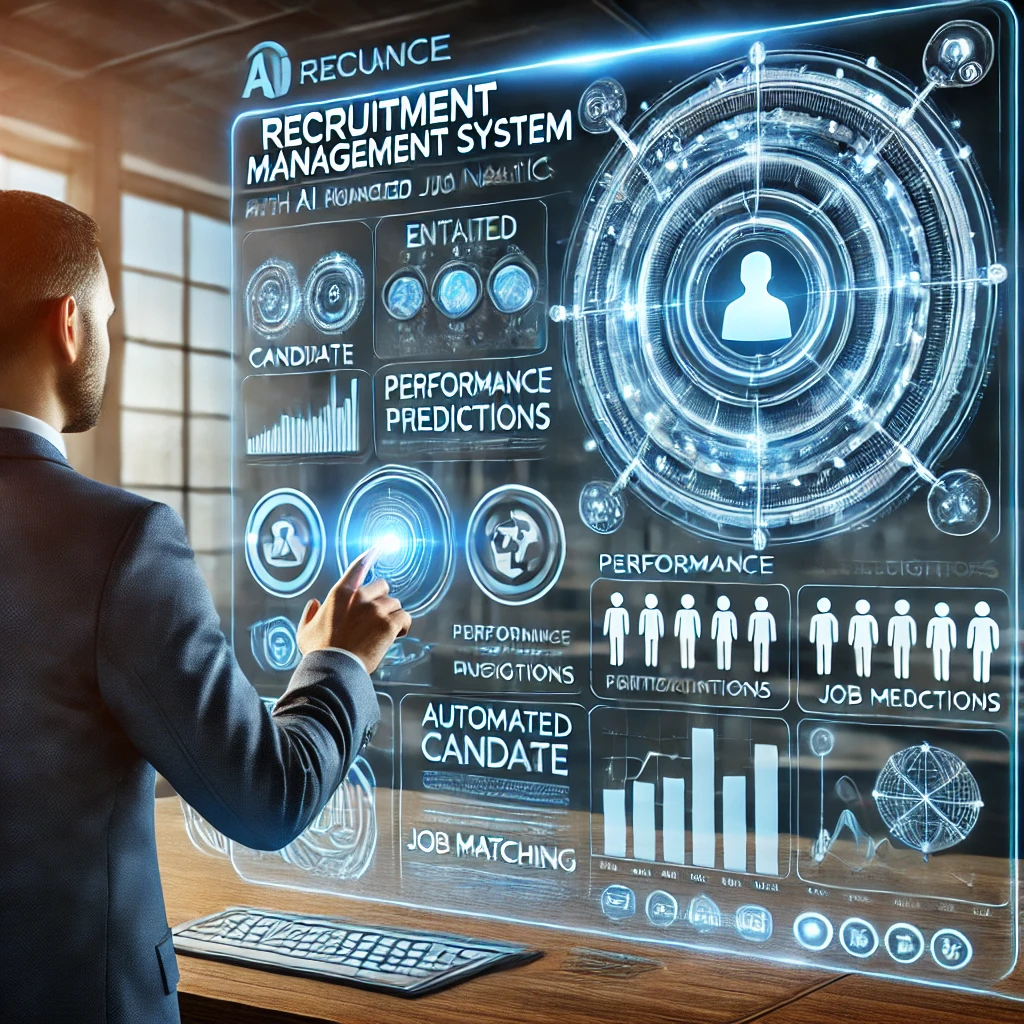AI Recruitment: Revolutionizing Talent Acquisition for the Future
Introduction
In the traditional recruitment process, recruiters often spend significant time manually reviewing resumes, contacting candidates, and scheduling interviews. Applicant Tracking Systems (ATS) have been a game-changer, offering automation to streamline these tasks. With the integration of AI into recruitment, ATS platforms can now take over much of the heavy lifting by automatically screening resumes and matching candidates to job requirements. This process not only speeds up hiring but also increases the accuracy of candidate selection.
By utilizing Applicant Tracking Systems (ATS), companies can reduce the time to hire and improve the quality of hires by leveraging AI algorithms that match job descriptions to candidate profiles. These intelligent systems provide a more efficient and data-driven approach to recruitment.
What is AI Recruitment?
AI Recruitment leverages artificial intelligence technologies—such as machine learning, natural language processing (NLP), and predictive analytics—to optimize the recruitment process. From resume screening to candidate matching, AI can help HR professionals make faster, more informed, and less biased decisions.
Key Features of AI Recruitment Systems
Automated Resume Screening
AI-powered tools can quickly analyze resumes and applications to identify the most qualified candidates. By using natural language processing, the system understands and evaluates not only keywords but the context in which they appear, ensuring a more accurate match to job requirements.
Key Benefit: Reduces time-to-hire by automating the initial stages of the recruitment process, freeing up recruiters to focus on high-value tasks like interviews.Predictive Candidate Matching
AI systems use historical hiring data to predict which candidates are most likely to succeed in a given role. Machine learning algorithms analyze past employee data to identify key traits that lead to high performance and longevity in the company.
Key Benefit: Increases the likelihood of hiring candidates who will succeed in the role long-term, improving retention and reducing turnover.Bias Mitigation
One of the most compelling benefits of AI recruitment is its potential to reduce human bias. By focusing solely on objective data like skills, qualifications, and experience, AI can help remove unconscious biases related to gender, race, or age that often influence hiring decisions.
Key Benefit: Creates a fairer and more diverse hiring process by ensuring that all candidates are evaluated based on merit.AI-Powered Interviewing
AI can also streamline the interview process. Virtual interview platforms powered by AI can assess candidates’ answers in real time, analyze their responses for tone, sentiment, and content, and provide feedback to recruiters.
Key Benefit: Reduces human error and ensures that candidates are evaluated consistently across all stages of the interview process.Candidate Experience Enhancement
AI tools can enhance the candidate experience by automating the scheduling of interviews, sending personalized communications, and providing real-time feedback. These systems make the process more transparent and engaging for candidates.
Key Benefit: Improves the candidate's experience by making interactions faster, more efficient, and less stressful.

Why Choose AI Recruitment?
Benefit | Description |
|---|---|
Employee Engagement | Boosts employee satisfaction and engagement by providing meaningful feedback and development opportunities. |
Retention | Improves retention by creating a positive work environment that supports well-being and growth. |
Productivity | Increases productivity by helping employees develop necessary skills and align their goals with company objectives. |
Well-being | Supports employee health and well-being, reducing burnout and promoting a healthy work-life balance. |
FAQ
1. What is AI recruitment and how does it work?
Answer: AI recruitment uses artificial intelligence technologies like machine learning and natural language processing to automate and enhance recruitment processes. It can screen resumes, match candidates to jobs, predict the likelihood of success, and even analyze interview responses, all with the goal of speeding up hiring while improving quality and reducing bias.
2. How does AI recruitment reduce hiring bias?
Answer: AI recruitment helps minimize human biases by focusing on data-driven insights rather than personal opinions or unconscious biases. By evaluating candidates solely based on qualifications, experience, and skills, AI ensures that hiring decisions are based on merit rather than demographic characteristics such as gender, race, or age.
3. What are the main benefits of using AI in recruitment?
Answer: AI in recruitment offers several advantages, including faster hiring, improved accuracy in candidate selection, bias reduction, and enhanced candidate experience. It automates tedious tasks like resume screening, reduces the time spent on administrative tasks, and helps companies make more data-driven decisions.
Ready to enhance your employee experience?
[Explore MokaHR’s Employee Experience Platform →]
Related HR Glossary Terms
Explore more HR terms? Back to HR Glossary
From recruiting candidates to onboarding new team members, MokaHR gives your company everything you need to be great at hiring.
Subscribe for more information

